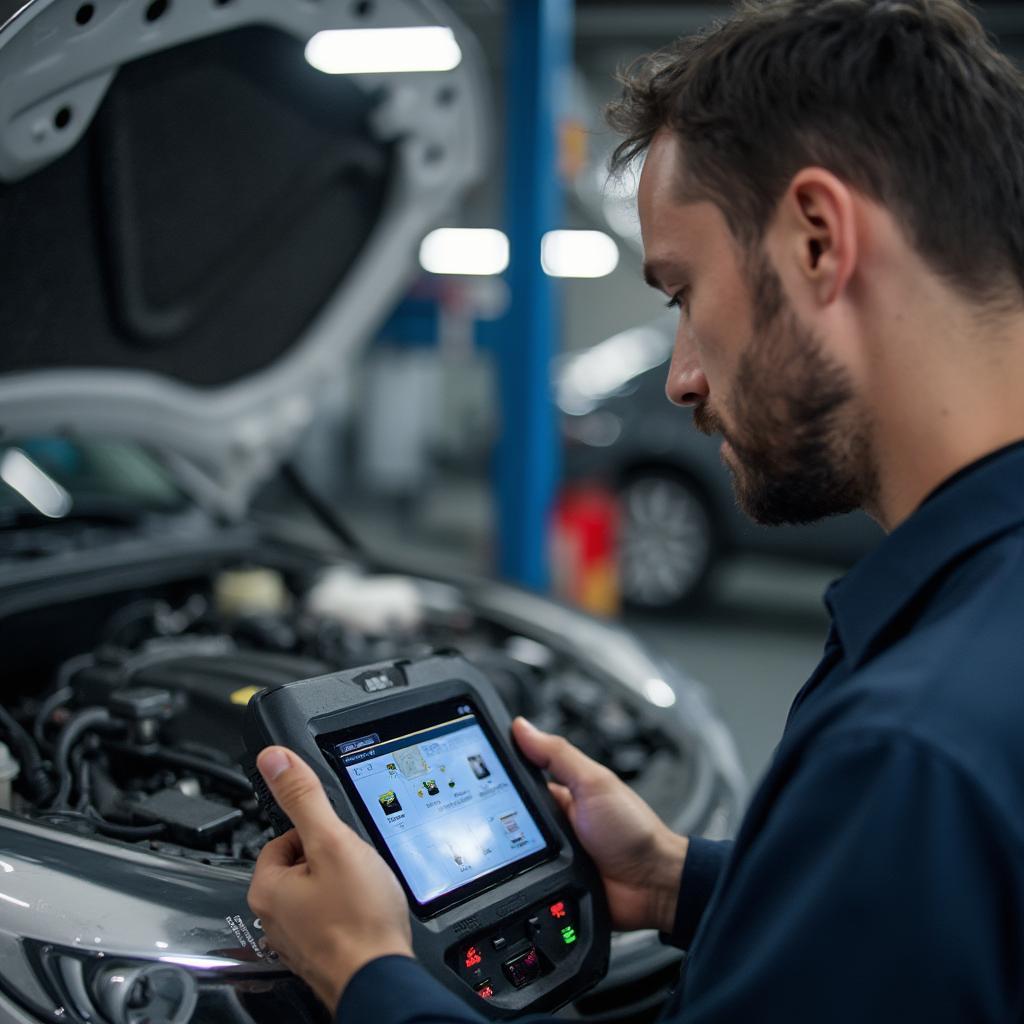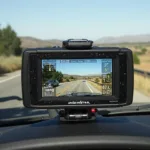OBD2 Bluetooth scanners have exploded in popularity in recent years, offering a seemingly convenient and affordable way to diagnose car problems. But are they any good? Like most things in life, the answer isn’t a simple yes or no.
What is an OBD2 Bluetooth Scanner?
Before we dive into the pros and cons, let’s clarify what we’re talking about. An OBD2 Bluetooth scanner is a device that plugs into your car’s OBD2 port (usually located under the steering wheel) and communicates wirelessly with your smartphone or tablet via Bluetooth.
This connection allows you to access and interpret your car’s diagnostic trouble codes (DTCs), monitor engine performance data, and even clear some basic codes. Essentially, it’s like having a mini mechanic in your pocket.
The Upsides of Going Bluetooth
So, why are OBD2 Bluetooth scanners so popular? Here are some key advantages:
- Affordability: Compared to professional-grade scanners, Bluetooth models are significantly cheaper, making them appealing to car owners on a budget.
- Convenience: No more bulky cables or complicated software installations. Simply pair the device with your smartphone, download a compatible app, and you’re good to go.
- User-friendliness: Most OBD2 Bluetooth scanner apps are designed with the everyday user in mind, offering intuitive interfaces and straightforward explanations of diagnostic data.
- Portability: Their small size makes them easy to carry around, allowing you to perform quick checks on the go or even lend it to a friend in need.
Potential Downsides to Consider
While convenient and budget-friendly, OBD2 Bluetooth scanners do come with some drawbacks:
- Limited Functionality: Don’t expect them to match the depth and breadth of professional scanners. They typically offer basic code reading and clearing, along with limited live data monitoring.
- App Compatibility Issues: Not all apps are created equal. Some might have compatibility issues with specific car models or operating systems, leading to inaccurate readings or frustrating glitches.
- Data Accuracy: While generally reliable, the accuracy of the data can vary depending on the quality of the scanner and the app you’re using. Cheap or poorly designed scanners might provide inconsistent or misleading information.
- Security Concerns: Bluetooth connections can be vulnerable to hacking. While not a widespread issue, it’s something to be aware of, especially when dealing with sensitive vehicle data.
 Mechanic using a professional OBD2 scanner in a garage
Mechanic using a professional OBD2 scanner in a garage
Choosing the Right OBD2 Bluetooth Scanner for You
Navigating the world of OBD2 Bluetooth scanners can be overwhelming. Here are some key factors to consider:
- Compatibility: Ensure the scanner and app are compatible with your car’s make, model, and year. Some scanners might work better with certain brands or specific vehicle systems.
- App Features: Look for apps that offer the features you need, whether it’s reading and clearing codes, viewing live data streams, logging trip data, or generating performance reports.
- User Reviews: Check online reviews from other users to get a sense of the scanner’s reliability, ease of use, and the app’s functionality and user interface.
- Price vs. Features: Balance your budget with your needs. While cheaper options are tempting, investing in a slightly pricier scanner from a reputable brand might offer better accuracy and a smoother user experience.
OBD2 Bluetooth: A Handy Tool with Limitations
OBD2 Bluetooth scanners are valuable tools for DIY car enthusiasts who want to gain a better understanding of their vehicle’s health. They’re convenient, affordable, and can help diagnose common car problems.
However, it’s crucial to understand their limitations. They aren’t replacements for professional-grade diagnostic tools or the expertise of a qualified mechanic. If you encounter persistent or complex car issues, it’s always best to consult a professional.

